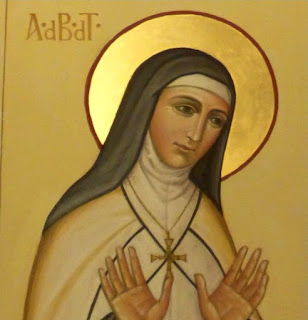Service & Solidarity: Choices & Community
 |
| Bro. Mitch helping at the PULSE house |
“I must decrease so that He might increase” John the Baptist
When I chose to begin teaching at St. Francis De Sales grade school, and soon after to begin a Marianist Community within the inner city of Cincinnati, Ohio, it was a choice to be of service and to join my life, in solidarity, to an urban African American population. I felt called to offer my gifts among those who were most in need. In many ways this was a naïve choice with personal and communal ramifications, far beyond what I could have expected.
 |
| Findlay St Community, Over the Rhine 2004 |
The first thing that began to surface within me was a realization that I was dealt a lot of aces in my life, whereas my neighbors and students weren’t so lucky in the card game of life. A two parent family, stable home, quality Catholic education, good models for social behavior, the ability to spend time in God’s creation, and the gift of faith were things I was born into, through no effort of my own. All were gifts, all were aces. This led me to a realization that I came from and existed in a privileged state.
 |
| Bro. Mitch at the MP2 Community |
The second thing I've learned from my service and solidarity is that none of us travel life without wounds. This is a bonding place between me and my neighbors. My neighbors might have wounds stemming from poverty, whereas my own wounds often stem from failures or inadequacies, or the times I found myself outcast or minimized due to my own unique life history. I can begin to understand and unite with my neighbors, when I come to terms with my own woundedness. Difficulties and negative perceptions with others are often held in check, when I can recognize that I often behave badly or desperately, out of the negative aspects of my own woundedness.
The final insight that came from service and solidarity is the fact that I cannot change the world on my own. I need to work with other people, and for me, the best way to accomplish this is through community.
But, the fact is that most of us (including me) are inherently selfish (simply a fact, it’s part of our human condition; original sin), and community living does not come naturally to us. We choose our friends and mates, hopefully our jobs, our entertainment, and the other things on which we spend our time and treasure, for those things that make us feel good, or give us energy. We avoid or condemn those things or persons that make us feel uncomfortable, irritated, or afraid.
Therefore, to live and work together in community, a family, or a civic community takes some skills and a mindset that we must spend time learning and practicing. Again these skills and mindsets don’t come naturally; we must learn them from other experienced community practitioners.
 |
| Orientation Retreat 2017 |
1. I am not the most important person in this relationship; we, together, are the most important persons in this relationship. When I forget this, I have the capacity to hurt others when I feel I’m not getting what I deserve.
2. There are some simple tools that make it easier for me to be aware of my responsibilities toward the community. Use of these tools help stave off conflicts over shared community resources and responsibilities. “Sign out” and “Sign up” sheets, shared calendars, common mission statements, goal sheets, all are helpful tools to keep our common life before us.
3. Community living does not happen through osmosis. Nor is it always joyful. It is learned, and we must spend time talking about how we are living our community life. This demands my time and attention. Regular gatherings to talk about community issues are necessary for strong community development.
4. It is my responsibility to bring to the table the hurts or irritations that I feel in community. It is the other members of my community’s responsibility to listen to my concerns. It is the responsibility of the whole community’s to seek solutions to the issue.
These are the learnings that I try to live by, stemming from my life of service and solidarity. Hopefully there are one or two things in this blog which will help to energize your own community mission efforts.
Peace to your Spirits, Alleluia, Alleluia!!!!!!
Bro. Mitch
 |
| Bro. Mitch with the Marianist Family at the Peace & Justice Walk |


Comments
Post a Comment